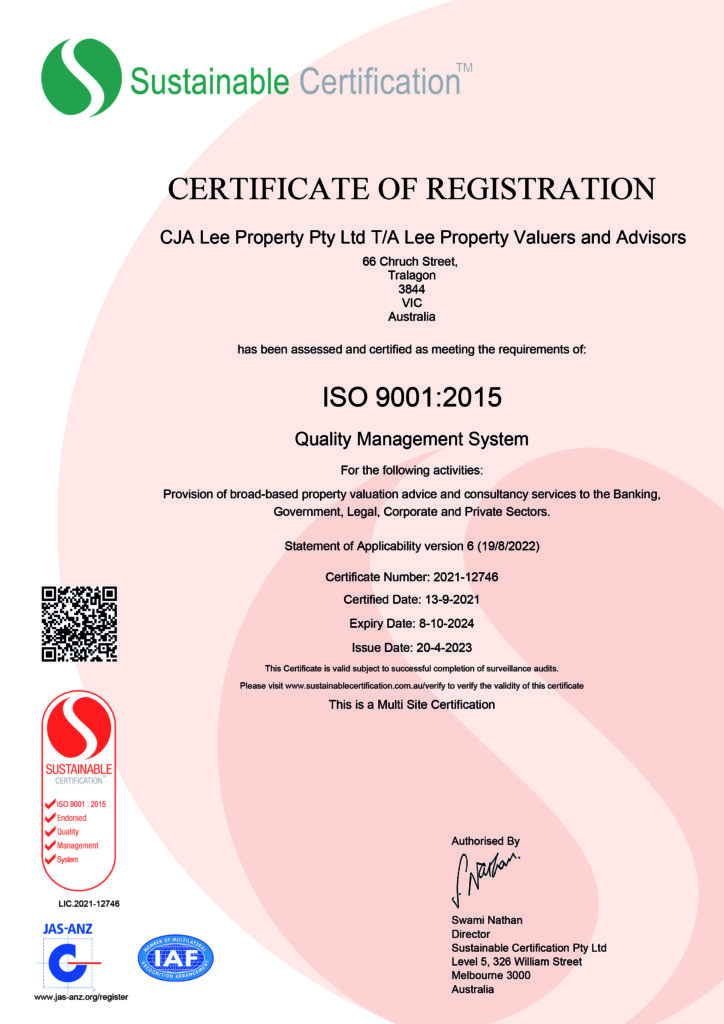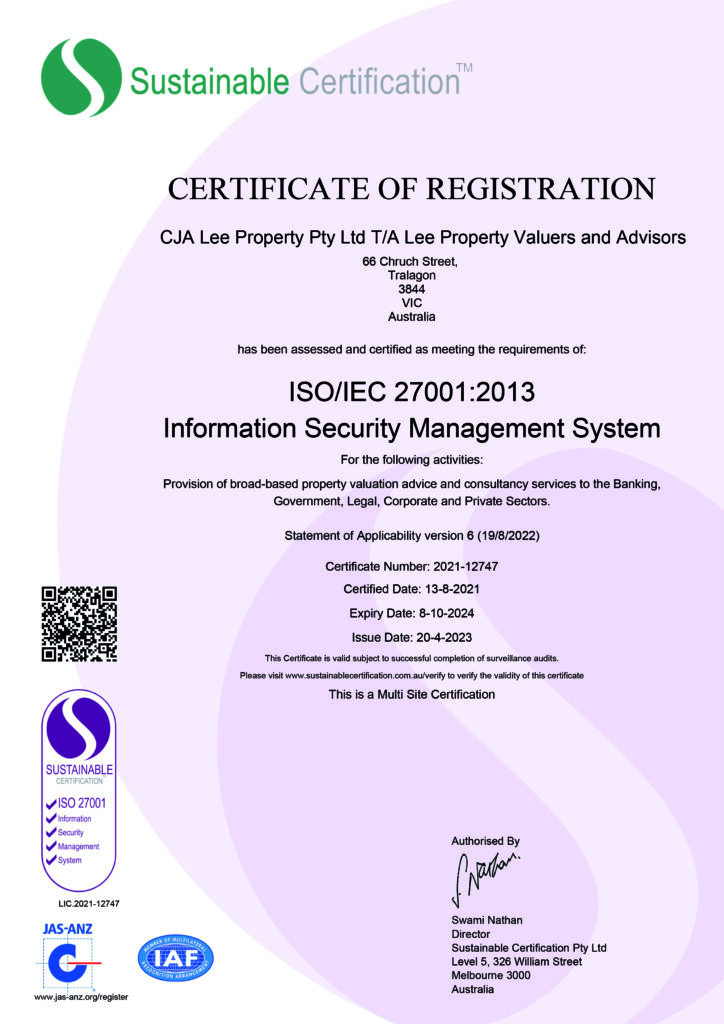Frequently Asked Questions
When assessing the value of a property, it’s crucial to understand the difference between a market appraisal and a property valuation.
What Is a Market Appraisal?
A market appraisal is typically conducted by a real estate agent as an estimate of what a property might sell for under current market conditions. While useful for setting a listing price, it is not an official valuation and is not performed by a qualified property valuer.
What Is a Property Valuation?
A property valuation is a formal assessment carried out by a qualified valuer, accredited by the Australian Property Institute (API). Professional valuers hold designations such as:
- Residential Property Valuer (RPV)
- Certified Practising Valuer (CPV)
Unlike market appraisals, valuations are independent, impartial, and legally recognized. They provide a professional opinion on a property’s value at a specific point in time, based on comprehensive analysis, market trends, and property-specific factors.
When Is a Property Valuation Required?
A market valuation is typically assessed on the date of the property inspection. In some cases, such as retrospective valuations, the valuation may be based on a past date relevant to legal, financial, or taxation matters.
Can a Valuer Act as an Advocate?
While valuers primarily provide independent market assessments, they can also act as advisors in non-market value situations when specifically instructed.
For expert property valuation services, trust our team of qualified valuers to provide accurate, professional assessments tailored to your needs.
At Lee Property Valuers, our first priority as professional property valuers and advisors is to understand the Scope and Purpose of our client’s request.
Understanding Scope and Purpose
- Scope refers to who is relying on our valuation advice.
- Purpose refers to why the valuation is required.
By defining these factors, we ensure that our valuation advice is tailored to its intended use and remains objective and legally sound.
Ensuring Independence & Avoiding Conflicts of Interest
Before proceeding, we assess any potential conflicts of interest that may compromise our ability to provide an independent and unbiased property valuation. If no conflicts exist, we officially accept the client’s instructions and begin our valuation process.
Determining Market Value: The Highest and Best Use Approach
A fundamental principle in property valuation is “Highest and Best Use”, as defined by the International Standards Committee and the Australian Property Institute (API):
“The most probable use of a property which is physically possible, appropriately justified, legally permissible, financially feasible, and results in the highest value of the property being valued.”
To determine this, we conduct extensive research into the physical, legal, and financial characteristics of the property, ensuring an accurate assessment of its optimal market potential.
Comprehensive Property Valuation Process
Our valuation methodology includes:
✔ Title & Subdivision Analysis – Reviewing the Certificate of Title, plan of subdivision, easements, encumbrances, and zoning regulations.
✔ On-Site Inspection – Assessing land, improvements, and locational attributes affecting property value.
✔ Market Research & Sales Analysis – Examining recent comparable sales and leasing transactions to gauge market trends and demand.
✔ Supply & Demand Analysis – Evaluating the current market conditions and future growth potential of the specific property type.
Delivering Expert Property Valuation Reports
Once our comprehensive research, inspection, and analysis are complete, our experienced valuers apply their expertise to interpret market data and form a professional, evidence-based opinion of the property’s value.
For independent, accurate, and professional property valuations, trust Lee Property Valuers.
The International Assets Standards Committee and Australian Property Institute’s definition of Market Value is:
“the estimated amount for which the land should exchange on the date of valuation between a willing buyer and a willing seller in an arms length transaction, after proper marketing, where the parties had each acted knowledgeably, prudently and without compulsion.”
The most common alternative form of value assessed for clients by Lee Property is what is known as ‘Fair Value’. This is a specific value concept used in Financial Reporting Valuations.
Valuations prepared for Financial Reporting Purposes, generally flow from a requirement for an entity (usually a company or Government Agency) to have regard the following accounting standards:
- The Australian Accounting Standards Board AASB13, – Fair Value Measurement;
- The Australian Accounting Standards Board AASB116 – Property Plant & Equipment;
- The Australian Accounting Standards Board AASB136 – Impairment of Assets;
Accounting Standard AASB13 defined ‘Fair Value’ as follows;
“The price that would be received to sell an asset or paid to transfer a liability in an orderly transaction between market participants at the measurement date.”
There are very specific guidelines for Valuers to have regard to when completing assessments under these Accounting Standards, and it is a specialised sector of valuation practice.
Whilst all CPV registered valuers can practice in this area Lee Property has two valuers awaiting accreditation as “Specialist Financial Reporting Valuers”, by the API, those being Mr Corey McMahon and Mr Tim Shaw.
A market valuation of a particular property is relevant at a point in time only. This is most commonly the date on inspection. However, a valuation report completed by Lee Property is only valid as at the date of valuation.
We can complete valuations at a retrospective date under certain circumstances.
The value assessed may change significantly and unexpectedly over a relatively short period (including as a result of general market movements or factors specific to the particular property).
Lee Property does not accept liability arising from such subsequent changes in value.
Without limiting the generality of the above comment, Lee Property does not assume any responsibility or accept any liability where a valuation is relied upon or after the expiration of three (3) months from the date of the valuation, or such earlier date if you become aware of any factors that have any effect on the valuation.

